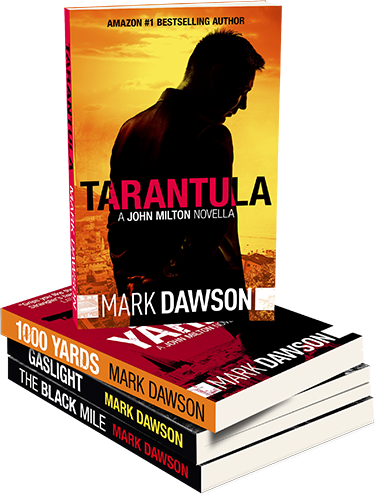Byte the Book is an organisation based in London that aims to bring writers and publishing people together in an environment where they can network and discuss the fundamental changes that are reshaping the book industry.
Amazon UK were approached to speak at the latest event on Tuesday, and they asked me if I would go along to discuss the things that I’ve achieved over the course of the last eighteen months. I was interviewed by the head of KDP UK, and, after a very pleasant meal and a couple of beers, we launched right into it.
It was a well attended event. The room at London’s (splendidly louche) Groucho Club was full and people were being turned away.
That’s not surprising. It has nothing to do with me, but more with the subject that we were talking about. I’ve built a small and profitable publishing company off the back of the tools and other facilities that Amazon (and the other retailers) have provided, and I’m not surprised at all that it would be of interest to others. I would have been very interested myself eighteen months ago, before I learnt the lessons from a year of experimentation and hard work in 2014.
You’re never sure what kind of atmosphere you’re going to get when you get into these kinds of things. That was doubly so on Tuesday, given that the main thrust of what I had to say was about Amazon. Everyone knows that the ‘Zon is tearing up the industry and making life ‘interesting’ for those who have been in the publishing game for a while. It — and the internet more generally — is a massive force for disruption in an industry that hadn’t seen much disruption previously (certainly not since the end of the Net Book Agreement in the UK and the end of Borders in the US). One tweet, displayed on the TV behind my head, suggested surprise from the tweeter that my interlocutor from Amazon didn’t have devil horns.
And he doesn’t! (Although, of course the devil is well known for being a master of disguise…)
I wittered on for an hour or so and then we took questions. There were some really good ones, too. People were interested in how I managed to write as much as I did last year, what tips I had for promotion, and how being indie published differed from being traditionally published at the start of my career. I was buttonholed by several interesting people from all across the industry afterwards, and my next trip up to London in March is already booked solid with meetings. All in all, it was a great evening and one I thoroughly enjoyed.
The thing I took away from it, though, was this. I hang out with a lot of indie writers. I’m in a couple of forums, and I listen to all of the main podcasts (and all the main internet marketing and social media podcasts, too). I have immersed myself in the industry for the last eighteen months and soaked up everything I can, no matter how seemingly esoteric and insignificant. Anything that can get me an edge, I want to know about it. And I think, during that time, I have forgotten that this is still the bleeding edge for most people. The industry at large has no real idea how successful indie writers do what they do. Terms like “metadata,” “MOBI,” “BookBub” and “CTA” (hell, even “mailing list”) might as well as be in Swahili for all the meaning they convey. When I dropped that I had a weekend (back in the good old days when Select Free Runs were massively powerful) when I had 50,000 copies of The Black Mile downloaded, you could almost hear the room swoon. When I told them I survey my audience regularly so that I can plot out effective pricing strategy and even derive guidance as to what to write next, some looked at me as if I was from Mars. Why didn’t their publishers do that for them?
And this is a good thing for indies. It means that, although the industry is coming around with more aggressive indie-style strategies on pricing and promotion, they still have a long way to go. Indies have been at the forefront of this pretty much from the start, and because we are nimble and agile and willing to take risks, we have learned a lot and built up a big competitive advantage.
A final point. As I left, a writer of some repute who shall remain nameless approached and asked if he could take me out for a drink. He is thinking of leaving his safe and secure midlist existence and gambling on doing things himself. It’s isn’t just the 70% against 10% for royalties. It’s the freedom to do things himself. If there is an error, he wants to be responsible for it — and not the stressed employee in marketing who has no time to take a proper interest in his book because she has another five titles to work on.
The sands are shifting, folks. Indies still have a head start, but numbers will be swollen as more and more traditionally published authors see the light. I’m not worried about that. There’s room for all of us.
This really is a golden age to be a writer.
***
Join my mailing list for my four book Starter Library. Four best-sellers, for free. No spam, ever, Click here.
